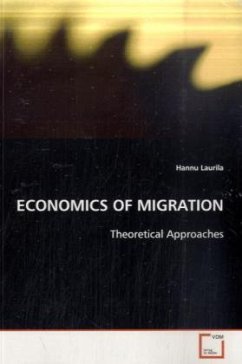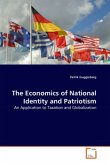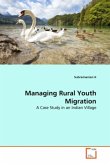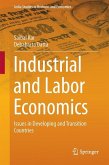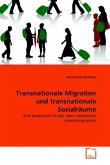Migration concerns a variety of private and
collective choices, which are of immense value to the
functioning of the market economy. This book provides
theoretical clarification to the issue with special
emphasis on the effects of migration of people. Three
types of analytical frameworks are used. The
Microeconomic Framework is based on a synthesis of
the classical models of labour migration and trade
policy. The short-run effects of taxation are
examined in close scrutiny. The Macroeconomic
Framework applies the Neo-Keynesian macroeconomic
model to the analysis of factor migration paying
attention to the market adjustment mechanism. In
examining the effects of local policies, the long
disgraced Adaptive Expectations Hypothesis is given
fresh interpretations. In the Club Theoretic
Framework, welfare in a locality depends on its size.
The competitive dynamics of the system is a product
of people s exit-type migration choices and their
collective voice-type choices. The need for
centralized policy intervention is also analyzed. The
leading intuition of the book is that migration
should be a vital element of spatial resource
allocation in the real-world context.
collective choices, which are of immense value to the
functioning of the market economy. This book provides
theoretical clarification to the issue with special
emphasis on the effects of migration of people. Three
types of analytical frameworks are used. The
Microeconomic Framework is based on a synthesis of
the classical models of labour migration and trade
policy. The short-run effects of taxation are
examined in close scrutiny. The Macroeconomic
Framework applies the Neo-Keynesian macroeconomic
model to the analysis of factor migration paying
attention to the market adjustment mechanism. In
examining the effects of local policies, the long
disgraced Adaptive Expectations Hypothesis is given
fresh interpretations. In the Club Theoretic
Framework, welfare in a locality depends on its size.
The competitive dynamics of the system is a product
of people s exit-type migration choices and their
collective voice-type choices. The need for
centralized policy intervention is also analyzed. The
leading intuition of the book is that migration
should be a vital element of spatial resource
allocation in the real-world context.

